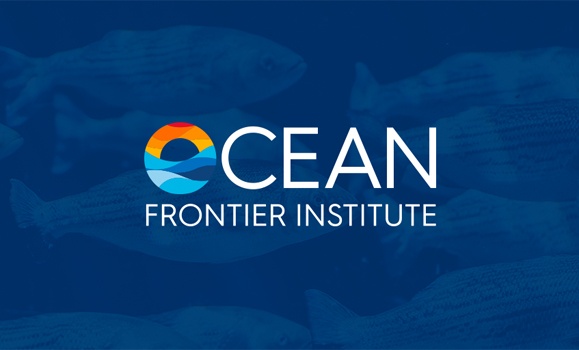The Atlantic-Canada based Ocean Frontier Institute (OFI) is putting millions of dollars into six innovative new ocean research projects.
This is in addition to currently underway to examine approaches to help ensure sustainable management of the North Atlantic and Arctic Gateway.
OFI is a transnational research hub created to study the oceanÔÇÖs most pressing issues, and to deliver those results and recommendations to inform government policy, community development and industry needs. This powerful partnership links ocean experts from ┬ÚÂ╣┤ź├Ż, Memorial University, and the University of Prince Edward Island with world-leading national and international collaborators.
This second phase of OFI research, scheduled to run until 2023, is focused on two themes:
The North Atlantic as a Climate Ocean: Understanding the physical, chemical, and biological processes governing climate, productivity, and ecosystem processes in the╠řNorth Atlantic and Canadian Arctic gateways.
Coastal Communities and the Ocean: Addressing how changing ocean dynamics impact coastal communities, and how rapidly-evolving social and economic conditions impact the marine environment.
This is in addition to six pre-existing themes that range from ensuring sustainable fishing practices and big data to marine safety and ocean-atmospheric interactions.
Critical work in global ocean science
ÔÇťThese projects will operate at a new scale of connectivity that spans natural and social science, industry and government, and local to national to international, in order to create a truly transdisciplinary program,ÔÇŁ says Paul Snelgrove, OFI associate scientific director. ÔÇťEach project links multiple Atlantic universities, builds partnerships with industry, government, and CanadaÔÇÖs Indigenous communities. These are the partnerships that Canada must embrace in order to achieve a sustainable future.ÔÇŁ
OFI was founded in 2016, thanks to a $94-million from the Canada First Research Excellence Fund, designed to position Canada to become a global leader in the search for safe and sustainable solutions for harnessing the worldÔÇÖs ocean resources.
ÔÇťThere is really nothing like the OFI anywhere else in the global ocean science landscape,ÔÇŁ says Anya Waite, OFIÔÇÖs scientific director and AVP of research (ocean) at Dal. ÔÇťWe enable teams from all over the world to work together and share perspectives and experience working toward one common goal. We break down silos and allow unprecedented collaboration. The more minds on these problems, the better.ÔÇŁ
Engaging youth across Canada in science and discovery
The phase two projects differ from the first round of funding in adding some innovative new facets linked to society.
While they faced the same rigorous scientific review as the earlier projects they were encouraged to include a more robust public engagement strategy, Indigenous partnerships, and clearer ties to community. Once the researchers go out into the field, film crews from will join them and follow their progress, incorporating their discoveries into learning modules they will share with middle-school students across Canada.
ÔÇťOcean SchoolÔÇÖs approaches are unique and they bring research to life for the next generation of potential ocean researchers and advocates,ÔÇŁ says Dr. Waite. ÔÇťThe youth of today are deeply concerned about the environment, and itÔÇÖs important for everyone to see how ocean research can inform a sustainable future. If we can, together, learn more about what is happening in the ocean, we can figure out what we can do to reverse the decline of ocean health.ÔÇŁ
Research results from OFI phase 1 are already rolling out, and expected to peak in 2022, with results from Round 2 expected by 2023.
┬ÚÂ╣┤ź├Ż the projects
Each new project has received between $1.2 and $4-million in funding. They are:
░┐▓ď▒░┐│Ž▒▓╣▓ď▒ß▒▓╣▒˘│┘│ˇ╠ř ╠ř
$1,246,900
This project aims to provide better understanding of the connection between ocean health, marine animal health, and human health.╠ř╠ř ╠ř
Offshore groundwater resources in a changing marine environment: Continental shelf surrounding Prince Edward Island
$1,995,000
Freshwater offshore aquifers located beneath the seafloor may represent a new and critical water resource for Prince Edward Island, and for similar island settings worldwide.
BEcoME - Benthic ecosystem mapping for sustainable ocean stewardship in a shifting ocean climate
$2,000,000
Surprisingly, only a small fraction of the seafloor has been mapped at the levels needed for us to understand ocean seafloor processes. This project aims to address data gaps in the Northwest Atlantic and help predict how threats like climate change will drive changes to vulnerable marine life on and near the seafloor.
Coastal Infrastructures ╠ř
$4,000,000
Researchers are re-thinking the way we design, develop, and manage infrastructures, with an overarching aim to ensure the designs of the future are sustainable, safe and inclusive.
The NorthWest Atlantic Carbon Pump
$4,000,000
Living organisms move large amounts of carbon dioxide deep into the ocean, and without this ÔÇťbiological carbon pumpÔÇŁ, carbon dioxide concentrations would be nearly double the amount in the atmosphere today and EarthÔÇÖs climate would be radically different. Currently, we lack measurements or models to reliably predict how these processes will change as the climate warms.
Sustainable Nunatsiavut Futures
$4,005,194
This project will look at rapidly changing environmental conditions in Northern Canada and the impacts on local communities who depend heavily on marine resources. The project will combine community-led knowledge and monitoring.

